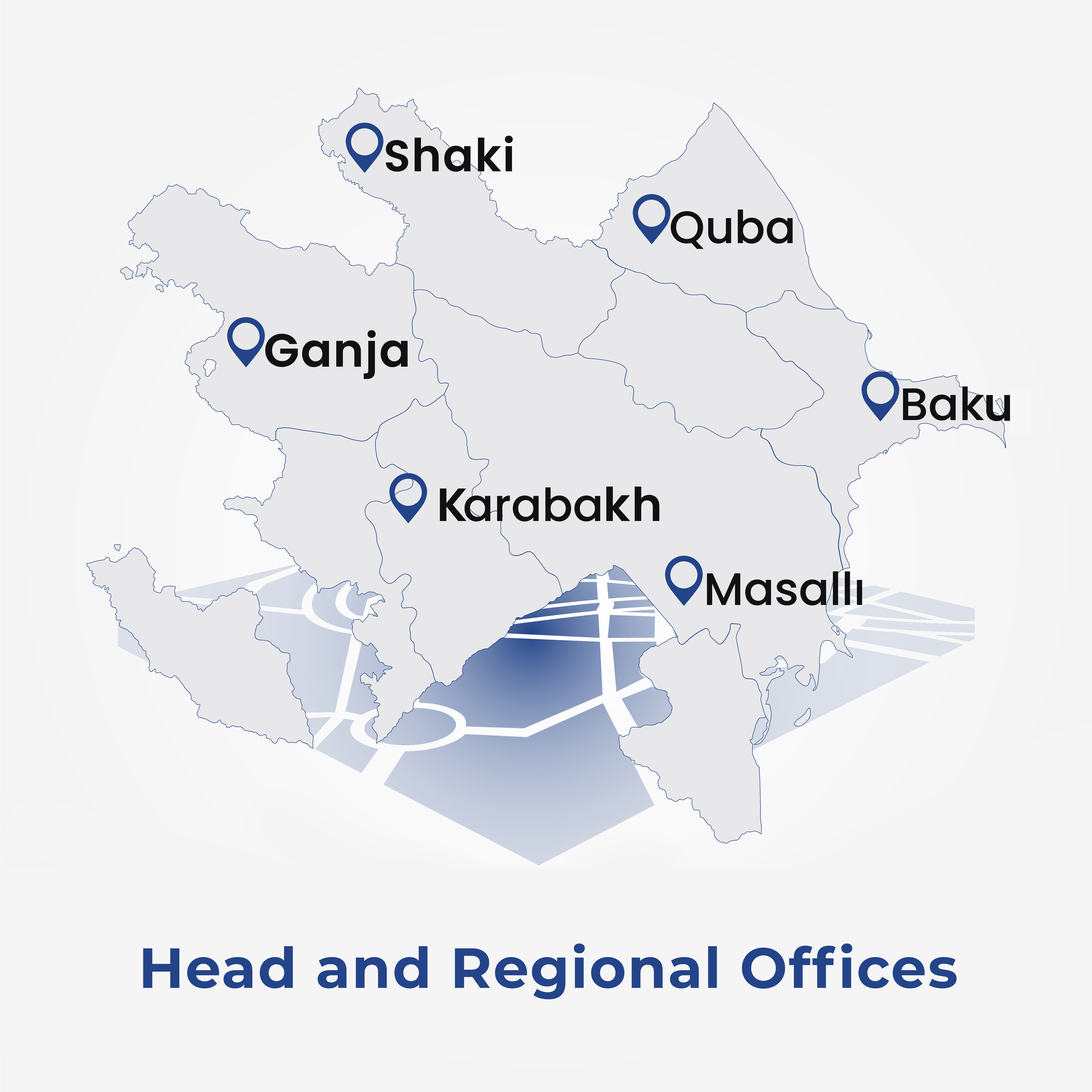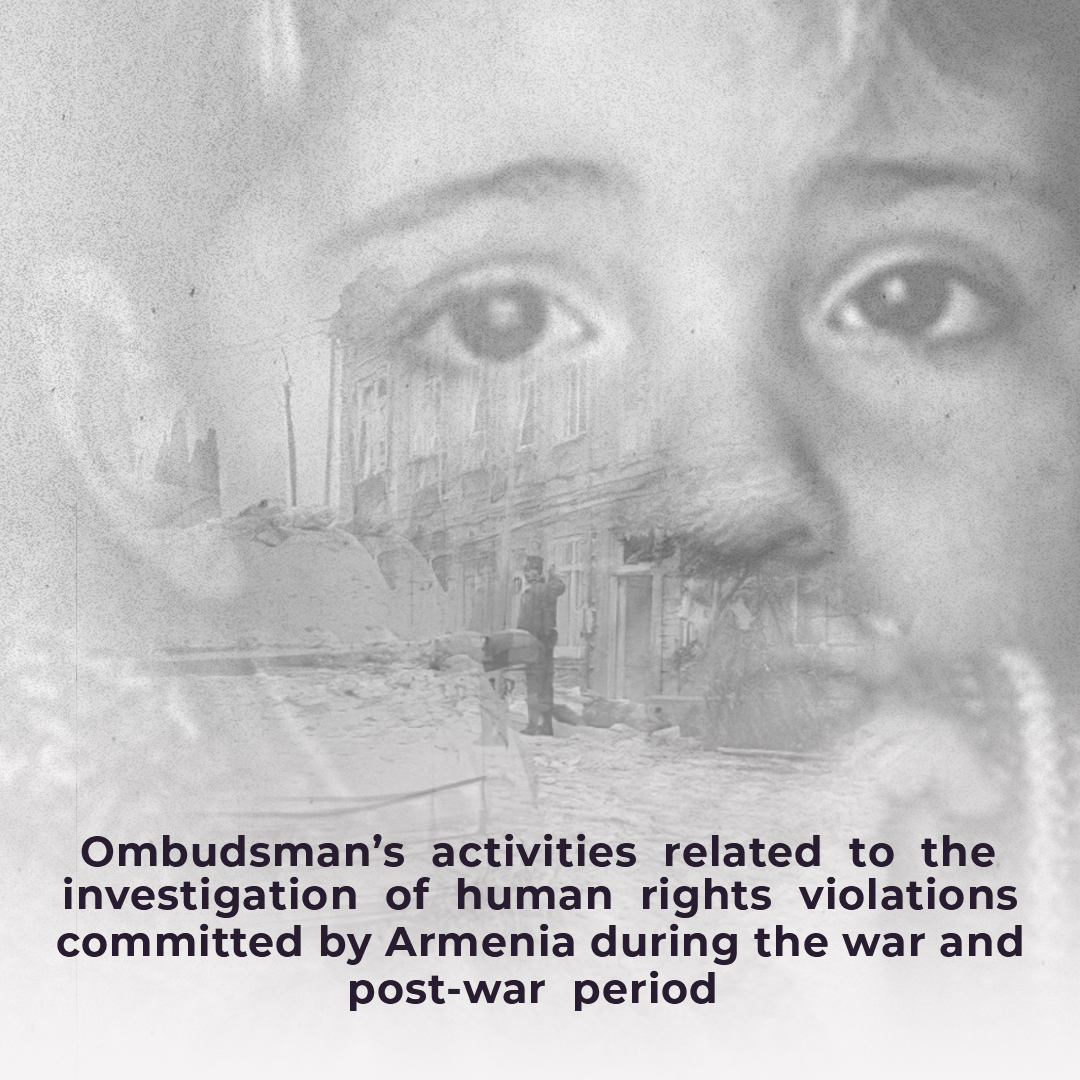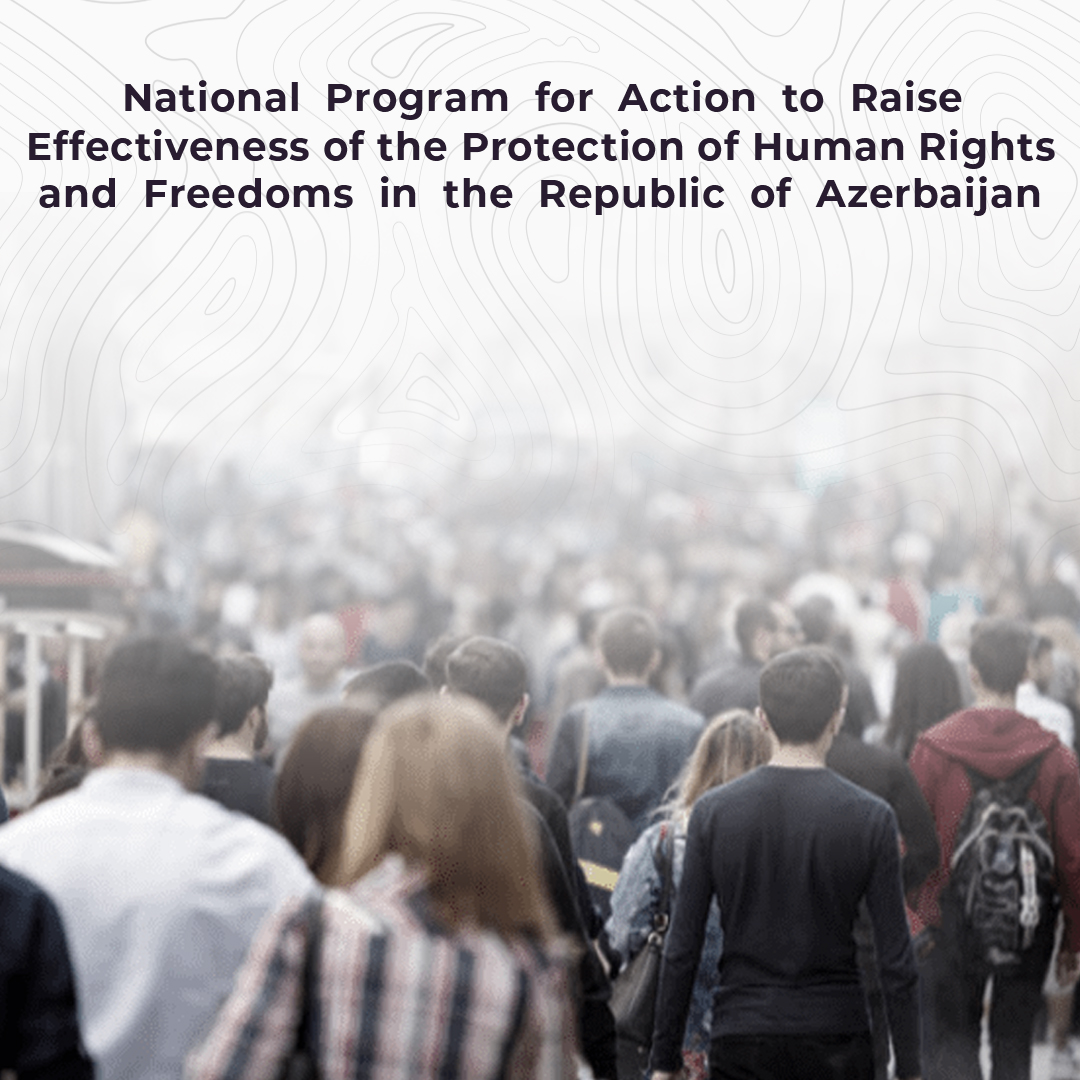
- Home page
- Commissioner
-
Activity Directions
- Mental Health and Human Rights
- Protection of the Rights of Population Groups
- Protection of the Right to Information
- Independent Monitoring Mechanism
- Legal Education
-
International Cooperation
- Cooperation with international organizations
- Cooperation with non-governmental organizations
- Study visits
- Projects
- Statements addressed to the international organizations
- “Ad hoc” reports
- Parallel and alternative reports submitted to the UN Treaty Bodies
- Oral and written statements submitted to the UN Human Rights Council
- Memorandums of cooperation
- Baku Declarations of Ombudspersons
- International Baku Forum
- Scientific Analytical Work
- Cooperation with Public and Civil Society Organizations
- Business and Human Rights
- National Preventive Mechanism Against Torture
- Protection of Human Rights
- Documents
- Media
- Live
- Contact
- Home page
- Commissioner
-
Activity Directions
- Mental Health and Human Rights
- Protection of the Rights of Population Groups
- Protection of the Right to Information
- Independent Monitoring Mechanism
- Legal Education
-
International Cooperation
- Cooperation with international organizations
- Cooperation with non-governmental organizations
- Study visits
- Projects
- Statements addressed to the international organizations
- “Ad hoc” reports
- Parallel and alternative reports submitted to the UN Treaty Bodies
- Oral and written statements submitted to the UN Human Rights Council
- Memorandums of cooperation
- Baku Declarations of Ombudspersons
- International Baku Forum
- Scientific Analytical Work
- Cooperation with Public and Civil Society Organizations
- Business and Human Rights
- National Preventive Mechanism Against Torture
- Protection of Human Rights
- Documents
- Media
- Live
- Contact
Call center
916
Visits are underway within the National Preventive Mechanism activities of the Ombudsman
Visits without prior notice are conducted on a regular basis to social service institutions, including psychiatric facilities and other facilities, which persons with disabilities cannot leave on their own will, in fulfilling the Ombudsman’s functions as a National Preventive Mechanism designated in the OPCAT.
The next visit without prior notice was paid to the Republic Psychiatric Hospital (public legal entity) of the Ministry of Health.
The visit was carried out on the basis of the UN Convention on the Rights of Persons with Disabilities, Principles for the protection of persons with mental illness and the improvement of mental health care, international standards on treatment of persons with mental illness, Constitutional Law on the Commissioner for Human Rights (Ombudsman) of the Republic of Azerbaijan and the Law on Psychiatric Assistance. It was aimed at investigating the status of living conditions, accessibility, treatment, nutrition level, access to medical-social services, investigation of received appeals, ensuring the rights of hospitalized patients, including persons with disabilities, adequate documentation in this facility during the special quarantine regime enacted in the country for the prevention of further spread of the novel COVID-19 and fostering the fight against this virus.
In the course of the visit in which physician-member of the National Preventive Group (NPG) and an expert on the rights of persons with disabilities also participated, the wards, corps and sections of the facility, including section for children, canteen, food storage and other units have been monitored in order to learn the living conditions in the facility. They have investigated the existing situation and documentation on organizing medical care, nutrition, supply of hot and cold drinking water, walking, meeting and phone conversation and identified some deficiencies.
During the visit, it was observed that there were some crowded sections. There was also need for organizing modern psychological and social care services in that facility.
Patients have been heard confidentially in the relevant sections of the facility in accordance with the special quarantine regime rules in order to investigate the treatment of them. Situation with ensuring their rights, issues raised by them and documentation were examined on site, as well as several appeals concerning medical care were provided on the spot.
In conclusion, awareness raising discussions were held with administration and responsible staff members of the facility. They were given recommendations in relation to the shortcomings about living conditions, medical care and documentation, also about the issues, immediate elimination of which was possible, according to the national legislation and international acts to which our country is a party.
It was noted that the permanent control over sanitary-hygienic situation, regular medical examination of patients, providing them with disinfectants and protective equipment, as well as informing the working staff about protection rules against infection are necessary for protection of the patients from the novel coronavirus infection.
- National preventive mechanism against torture
- Protection of the rights of population groups
- Protection of the rights of refugees, IDPs and migrants
- Protection of the rights of detainees and prisoners
- Protection of the rights of military servants
- Protection of women's rights and provision of gender equality
- Protection of child rights
- General
- Legal awareness
- Protection of the rights of older people
- Protection of the rights of persons with disabilities
- Cooperation with public and civil society
- National preventive mechanism against torture
- International cooperation
- Non-Governmental Organizations
- Public hearings
- Mass media
- Business and Human Rights
- Protection of the rights of martyrs' families and war veterans
- Protection of the rights of migrants
- Prevention of discrimination and ensuring equality
- Right to information
- Mental health
- .
-

- The Ombudsman participated in the International Conference on “Artificial Intelligence and Human Rights: Opportunities, Risks and Visions for a Better Future” in Qatar.
-

- The Ombudsman sent letter to UN High Commissioner for Refugees regarding protection of rights of persons deported from Armenia.
-

- A representative of the Ombudsman Office took part in an event organized by the Ministry of Energy.
-

- The Ombudsman’s representatives participated in the Pardon Decree Enforcement Ceremony.
-

- A series of legal awareness events were organized by the Ombudsman's Regional Centers.
-




